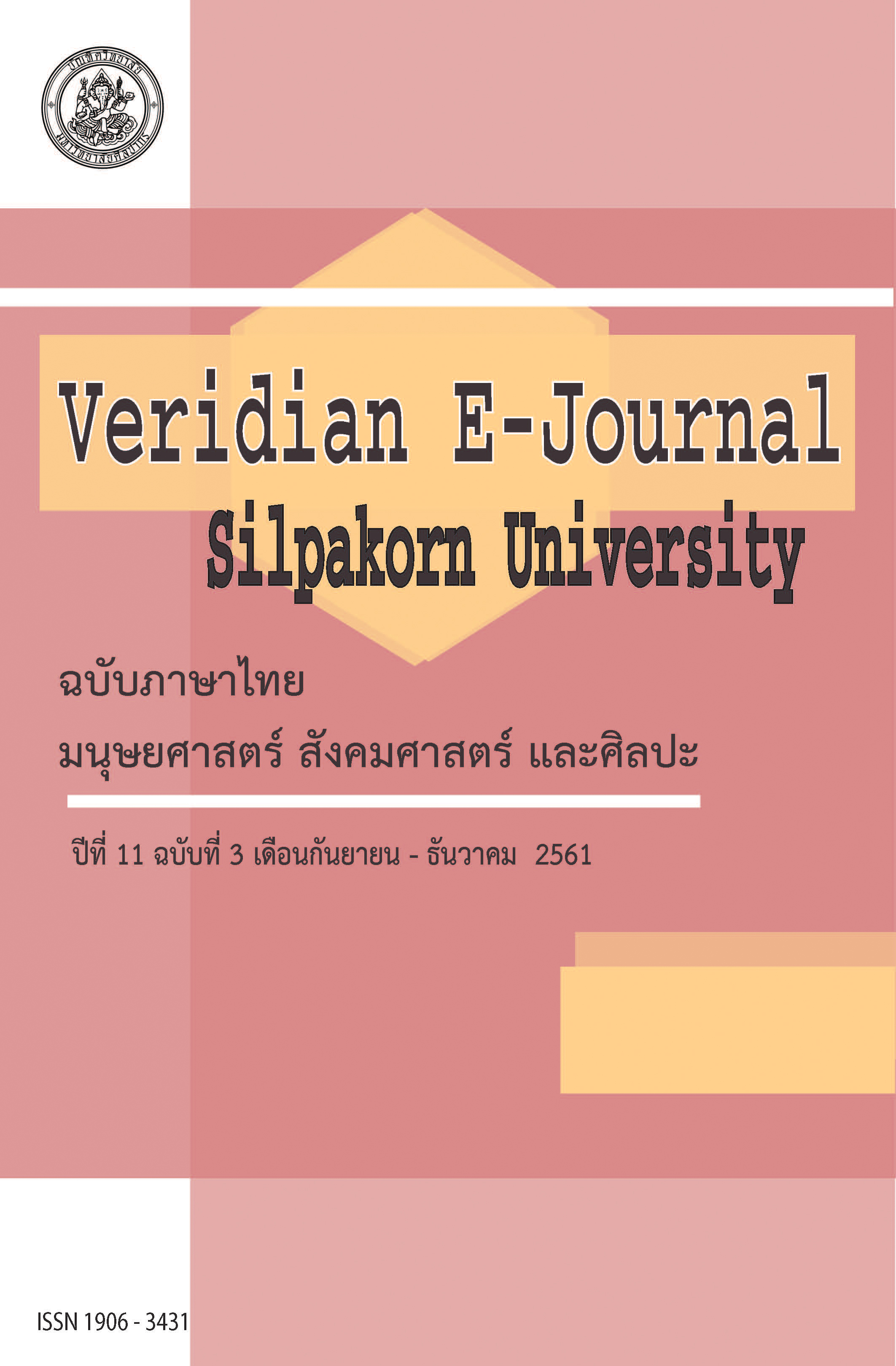การบำบัดน้ำเสียด้วยวิธีธรรมชาติในชุมชนเมือง: กรณีศึกษาชุมชนแออัด หลังวัดปทุมวนารามราชวรวิหาร กรุงเทพมหานคร (Natural Wastewater Treatment in Urban Area: A Case Study of the Community behind Wat Patumwanaram, Bangkok)
Main Article Content
Abstract
การศึกษานี้มีวัตถุประสงค์เพื่อศึกษาข้อมูลพื้นฐานของระบบบำบัดน้ำเสียด้วยวิธีธรรมชาติ และเพื่อเสนอแนะแนวทางที่เหมาะสมในการประยุกต์ใช้ระบบบำบัดน้ำเสียด้วยวิธีธรรมชาติในพื้นที่ชุมชนแออัดหลังวัดปทุมวนารามราชวรวิหาร งานวิจัยนี้ดำเนินการโดยการศึกษาทฤษฎี วรรณกรรม วิทยานิพนธ์ งานวิจัย ตลอดจนสื่อออนไลน์ต่าง ๆ ที่เกี่ยวข้องกับระบบบำบัดน้ำเสียด้วยวิธีธรรมชาติ จากนั้นจึงทำการเปรียบเทียบข้อดีและข้อด้อยของระบบบำบัดน้ำเสียด้วยวิธีธรรมชาติประเภทต่าง ๆ ควบคู่ไปกับการศึกษาโครงการตัวอย่างเพื่อพิจารณาเลือกระบบบำบัดน้ำเสียด้วยวิธีธรรมชาติที่เหมาะสมกับพื้นที่ศึกษา
จากการศึกษาพบว่า
1) ระบบบำบัดน้ำเสียด้วยวิธีธรรมชาติในประเทศไทยนั้นมีอยู่ด้วยกัน 4 ประเภทได้แก่ ระบบบ่อบำบัดน้ำเสีย ระบบหญ้ากรองน้ำเสีย ระบบพื้นที่ชุ่มน้ำเทียม และระบบแปลงพืชป่าชายเลนบำบัดน้ำเสีย ซึ่งระบบบำบัดน้ำเสียเหล่านี้เป็นระบบที่สามารถก่อสร้างได้โดยง่าย ไม่จำเป็นต้องอาศัยความเชี่ยวชาญเฉพาะในการก่อสร้างและดูแลรักษา รวมทั้งยังเป็นมิตรต่อสิ่งแวดล้อมอีกด้วย
2) ระบบบำบัดน้ำเสียด้วยวิธีธรรมชาติที่เหมาะสมกับพื้นที่ชุมชนแออัดหลังวัดปทุมวนารามราชวรวิหารนั้นมีด้วยกัน 2 ประเภท ได้แก่ ระบบหญ้ากรองน้ำเสียและระบบพื้นที่ชุ่มน้ำเทียม ทั้งนี้เนื่องด้วยระบบดังกล่าวไม่ต้องการพื้นที่ขนาดใหญ่ ซึ่งเหมาะสมกับชุมชนแออัดหลังวัดปทุมวนารามราชวรวิหารที่มีพื้นที่ขนาดเล็กและมีที่ว่างจำกัดมาก
The objectives of the research are to study basic information of wastewater treatment using natural methods and to suggest solutions based on natural wastewater treatment methods that can be applied to the congested neighborhood behind Wat Patumwanaram.
The research was done by collecting and analyzing on secondary data such as theories, journals, theses, other researches and online publications that are related to natural wastewater treatment. All materials were measured in order to develop advantages and disadvantages of this wastewater treatment method. In addition, domestic case studies were evaluated to find out which natural wastewater treatment method is compatible with the research area.
According to the study, the findings are below:
1) There are four approaches of natural wastewater treatment, which are Lagoon Treatment, Grass Filtration System, Constructed Wetland, and Mangrove Forest Filtration. All four methods have advantages as they are easier to build and maintain without an assistance from a specialist than any other wastewater treatment approaches including that these methods are environmental friendly and do not have any negative impacts on environment.
2) Two natural wastewater treatment systems are found to be appropriated for the case study; congested neighborhood behind Wat Patumwanaram. They are Grass Filtration System and Constructed Wetland Methods. This is due to the fact that the neighborhood is only a small area with limited space as well as it is located in the city center. Therefore, for this research area, it is not recommended to employ natural wastewater treatment system that requires an extensive space to construct since it will generate more problems to the community.

